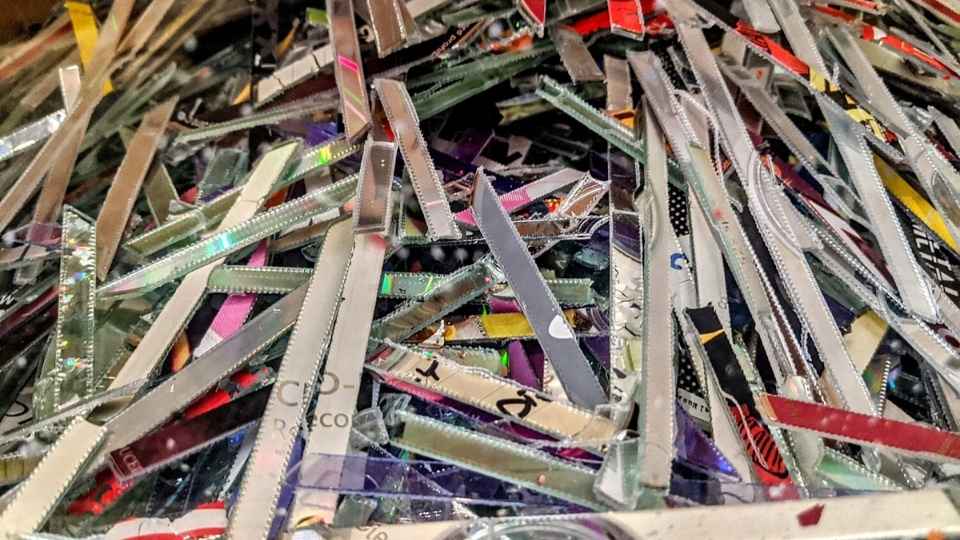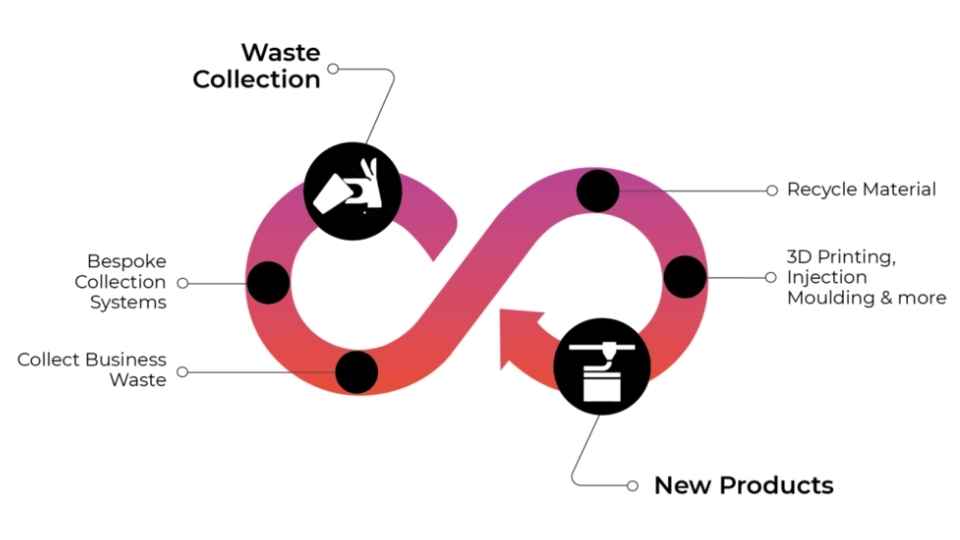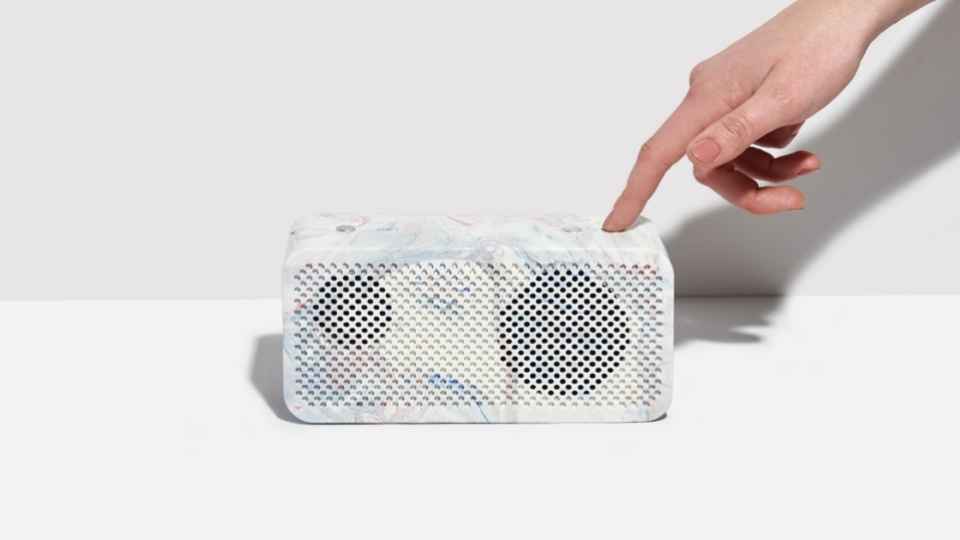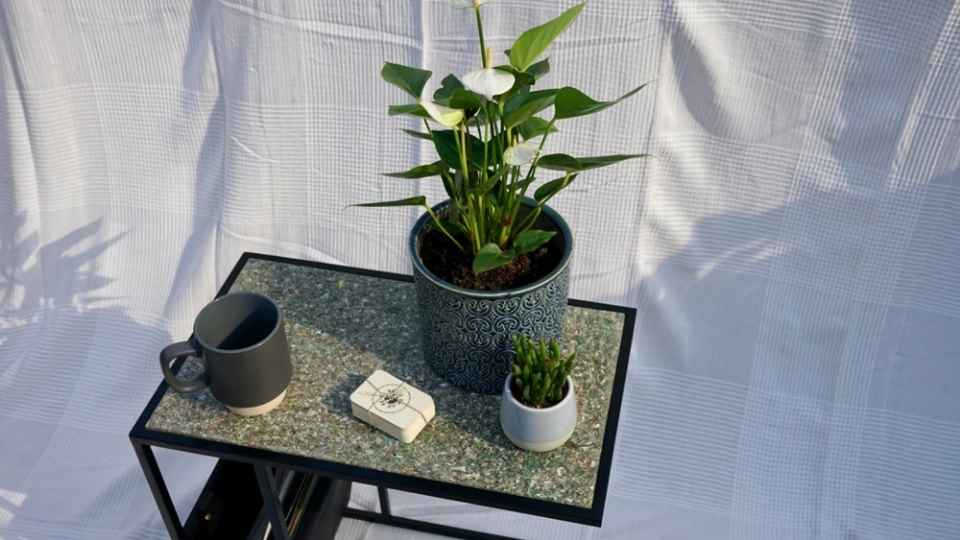
The Road to B Corp™ Certification: Future Leap’s Journey
May at Future Leap with Megan Gallagher
Good Employment Charter
B in the Know: The Routes and Benefits to Becoming a B Corp
March at Future Leap with Alan Bailey
February at Future Leap with Katherine Piper
“Just being 100% renewable in itself was a piece of activism”
Shouting Sustainability from the Rooftops with Molly Byrne
January at Future Leap with Katherine Piper
Life in Plastic and Circular Solutions
Our Relationship with Plastic and Waste
Incredibly convenient, yet dangerously problematic – plastic has become a symbol of society’s throwaway culture. Our dependence on plastic has grown to an astonishing degree over the last few decades. Now incorporated into nearly every aspect of our lives, it is almost unfathomable to imagine an existence before the dawn of this synthetic material.
Our relationship with plastic is complicated to say the least, and absolutely toxic. We all know the implications caused to our environment and health as a result of the overuse of plastics, yet we cannot deny the importance of the countless advancements made possible by its use, such as in medical, electronic and automotive improvement. It is these advancements that make a life without plastic appear unattainable.
Since the start of the COVID pandemic, monumental amounts of PPE, often made from plastics, have become compulsory and are now deeply incorporated into our lives. It is clear that some plastics are absolutely necessary within society, yet it is disheartening to see our streets littered with discarded blue masks. Can these benefits of plastic be worth the environmental consequences facing us today?
Despite a conscious awakening to the problems of pollution, plastic production is expected to grow by 40% by 2030. Half of plastic currently produced is single use, which is discarded as soon as it has fulfilled its original purpose. The ascent of consumerism has led to our excessive use of disposable items, with an overwhelming volume of products now overlooked for the possibility of life-time use.
If we are to tackle the plastic problem, we need to examine the root of the problem, which all comes down to our patterns of behaviour.
Of course, human behaviour was greatly affected by the creation of plastic, leading to a surge in consumerism. Yet now we are faced with the challenge of altering our behaviours to consume less, and to make mindful decisions when purchasing. Changes to societal behaviour leads to the spread of ideas, and in turn the shift of social norms. We can alter community expectations of both business and government in order plant the seed of system change.
We are seeing that behavioural changes have led to solutions at consumer level over recent years, for example: through plastic bag charges, the ban on plastic straws, the arrival of zero-waste shops, refill stations and deposit schemes. These seemingly small adjustments can have a huge impact. We are able to see that the tides are changing, and businesses are examining their operations and supply chains to reduce the amount of plastic waste, along with other environmental factors.
It is shocking to realise that only 20 corporations are responsible for over half of the world’s plastic production. A recent study by the Plastic Waste Makers Index highlights the devastating impact created by companies at the forefront of the plastic supply chain. This analysis provides us with a perhaps predictable view of this small number of organisations and their financial supporters who bring about most of the single-use plastic across the globe.
However, we can influence organisations with our purchasing power. This idea of voting with your money refers to the impact of the consumer’s choice on the producer’s actions. As consumers we have the opportunity to influence change by opting for sustainable options, and it is becoming ever clearer that even the largest of corporations are listening.
Unilever, the fast-moving consumer goods company that provides a range of products to around 190 countries across the world, have shared their commitments to sustainability. They say that they will “eliminate problematic or unnecessary plastic packaging by 2025” and “move from single-use toward reuse models where relevant by 2025”. This is of course a positive sign of progress and proof that consistent and collective demand for change does have an effect.
If we are to successfully alter the systems currently in place, we must first analyse the trajectory of these processes.

Shredded CDs as part of Revive Innovation’s installation at the Future Leap hub.
The Circular Economy
Natural systems have existed for billions of years and will continue to do so long after we are gone. These living systems move in continuous cycles, where one specie’s waste acts as another’s food, life gains energy from the sun, creatures die and return to the soil as nutrients, and this process endures. Nothing is wasted.
This may ring bells as you remember the Lion King’s message – the circle of life. This system works as a flowing circle, whereas the systems constructed by humans embrace a linear approach. We take resources from our environment, use these to produce a product, we roll it out to consumers and then proceed to dispose of the waste. This waste is not sent back through the system to benefit anyone or anything and is often sent to landfill or an incinerator.
We can observe how the natural cycle works, and so how may we learn to adopt this into our own economy? Through the redesigning and repurposing of products and the packaging they come in, we can create a more resilient and circular economy.
Many of our every-day items do not biodegrade. Think about the phone in your pocket, the computer on your desk, the washing machine in your home. Rather than being discarded and sent to the tip, a circular economy would see a redesign of the entire process behind these products. Their valuable metals, plastics and alloys would be reused and repurposed once they have fulfilled their function as one product and be utilised as another. This system would adopt return and reuse.
The end goal of a circular economy is to identify and close the loops of our waste. Long-lasting design incorporates the opportunity for maintenance, repair, reuse and refurbishment. This regenerative approach sees products being recycled to serve new functions rather than ever being discarded and suggests a shift away from one-off products.
Future Leap and Circular Design
Here at Future Leap, we work to champion the leading innovators within the green economy, and work with a range of organisations who uphold circular principles.
Join us on Thursday the 15th July for an event dedicated to Circular Economy Innovations. We will be accompanied by speakers from CanCan and Anthesis, as well as our very own consultant, Eion McQuone to discuss current examples of the circular economy in action.
Future Leap showcase organisations who design bespoke recycling systems for businesses, based on their individual needs, as well as create designers producing beautiful and practical items from waste materials.
Rubbish Ideas
Founded in 2018, Rubbish Ideas area a band of designers and sustainability experts, driven to make a positive difference through embracing and promoting circular economy principles. Passionate environmentalists who believe in following science, the Rubbish Ideas team aim to make a real difference through the design, production and selling of products and services which support the circular economy.
Using scientifically sound ideas, proven to protect the planet and natural resources, Rubbish Ideas develop products and systems that close the loop and maintain traceability.
The Rubbish Project works with recyclers and manufacturers to provide circular economy solutions which make true environmental sense. Their first product, The Rubbish Cup, is a 100% recycled plastic cup, which was collected and turned back into cups using a bespoke recycling system.
Now exploring the use of 3D printing to turn rubbish into both beautiful and functional products, Rubbish Ideas continue to create value from waste.

Gomi Design
Gomi Design turn otherwise non-recyclable plastics into high-end electronic products. Entering the design world by releasing the worlds very first portable speaker made from plastic bags and powered by 100% repurposed e-bike batteries, they are now leading the way as a tech brand that puts sustainability first.
The team at Gomi embrace commonly discarded flexible plastic waste, such as plastic bags, bubble wrap, food and pallet wrapping. These are not yet recycled and are in fact incinerated. Gomi aim to have a positive impact through repurposing this plastic waste.
Based in Brighton, UK, all of their products are created in house, where they strive to promote systems through which products will be infinitely repaired or repurposed. Their materials are sourced from local companies, large global corporations as well as recycling companies, and are then processed into useful products from rubbish that would otherwise end up in landfill or an incinerator.

Revive Innovations
Revive Innovations are the minds behind the RE-CD solution, an opportunity to repurpose post-consumer waste. This was thought-up to tackle the global issue of recycling CDs, DVDs, games and software disks.
Recognising the sheer number of CDs and disks becoming obsolete, Revive Innovations have developed a processing method through experimental design. This created a unique and sustainable composite material that consists of 100% waste discs, while also being completely recyclable.
Revive Innovations are establishing collection stations and partnerships with local organisation to improve the recycling infrastructure while also educating people about the possibilities of circular design systems.
From earrings to furniture, RE-CD products hold no additives and are made by skilled, independent local fabricators. Holding boundless character, as well as durability, Revive Innovation products are helping to show the potential behind circular processes.

Plastic Free July
This month, the Future Leap team are reflecting on our own consumer behaviours and contributions towards the current linear systems in place. We have decided to take part in the Plastic Free July challenge by cutting down on single use plastics.
Plastic Free July is a global movement that helps millions of people be a part of the solution to plastic pollution – so we can have cleaner streets, oceans, and communities.
We will be featuring our thoughts and experiences through our blog posts and social media for the rest of July, so make sure to check in for facts, tips and updates along the way.
Will you be part of Plastic Free July by choosing to refuse single-use plastics?


